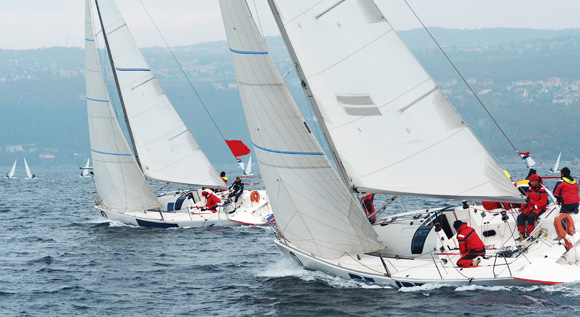Renewable energy: The auction has started
Auctions under the 2017 Renewable Energy Sources Act are picking up speed: bidding for off-shore wind farms is underway. The first regular auctions for solar-power installations are currently being evaluated.
 © iStock/technotr
© iStock/technotr
The 2017 Renewable Energy Sources Act (EEG 2017), which notably introduced the new market-based bidding procedures for the promotion of electricity from renewable energy, has been in force since the start of the year. The first regular auction for solar power installations ended a few days ago. The national regulatory authority, the Bundesnetzagentur, is currently evaluating the bids and will shortly publish the results. In addition, the Bundesnetzagentur and the Federal Maritime and Hydrographic Agency last week announced the conditions for the first German auction for offshore wind energy installations.
Both calls for bids - the one for solar power installations over 750 kilowatts (kW) and that for offshore wind farms - represent a paradigm shift in the promotion of renewable energies. Funding rates for electricity from solar, wind and biomass installations are no longer fixed by government, but are determined via a market-based auction scheme. The basic principle is that funding will go to those who demand the least for operating such installations. The calls for bids are designed to increase competition and make the expansion of renewable energy more cost-efficient and predictable.
Pilot auctions: level of funding is sharply reduced
The new auctioning scheme has already proved a success: Since 2015, six pilot auctions have been conducted for ground-mounted PV installations, i.e. large solar farms. The market-based procedure has been shown to be effective: the funding amount fell by around 25 per cent, as shown in our chart. As far as the bidding process itself is concerned, extensive experience has been gained during the six pilot rounds, which will now be used to benefit the calls for bids for technologies. "Our experience has been fed into the legislative process of the 2017 Renewable Energy Sources Act, leading to a simplification of the procedures for bidders," said Jochen Homann, President of the Bundesnetzagentur.
In order to ensure that smaller bidders also have a good chance of success and to maintain the high level of diversity of German players in the energy transition, the following simplified conditions apply to citizens’ energy companies and energy cooperatives: when competing in bidding procedures for wind energy, they do not need to furnish a certificate of compliance with immissions control regulation, which reduces the cost of participating in the auction. Small PV installations with a capacity of up to 750 kW are exempted from the auctions. Solar rooftop installations (for example on private single and two-family homes) continue to receive a fixed, legally regulated payment per kilowatt-hour of electricity generated.
First cross-border auctions have been conducted
The 2017 Renewable Energy Sources Act anchors the energy transition cross-border: funding for renewable energy is now available to other countries. More specifically, this means that 5 per cent of new renewables capacity to be installed each year is to be opened up to installations in other European Member States. Initial experience was gathered with Denmark by means of a pilot project on reciprocal opening of auctions for ground-mounted PV installations. The first auction with a volume of 50 megawatts (MW) has meanwhile been completed. All bidders with installations located in Germany or in Denmark were allowed to participate in the auction. Danish solar farms won the auction. For more information, please go to the homepage of the Danish Energy Agency.
Drawing on the experience gained here, further cross-border auctions are planned in the future. From 2017, this cooperation is to be extended to include onshore wind energy projects.
2017 deadlines for national auctions
This year, further national auctions are planned as follows:
- Offshore wind energy: The call for tenders with a volume of 1,550 megawatts (MW) was launched on 30 January. Bids can be submitted until 3 April 2017.
- Onshore wind energy: The first deadline for bids to be submitted for onshore wind-powered installations is 1 May 2017. The volume of this auctioning round is 800 MW. Further calls for tenders are planned for 1 August and 1 November 2017. In principle, it is mandatory to conduct an auction for plants with an installed capacity of at least 750 kW. Exempt from this rule are pilot installations intended to test innovative technologies.
- Solar energy: The next deadlines for bids to be submitted on solar installations are 1 June and 1 October 2017.
- Biomass: The first deadline for bids to be submitted on biomass installations is 1 September 2017. On this date, 150 MW will be auctioned.

